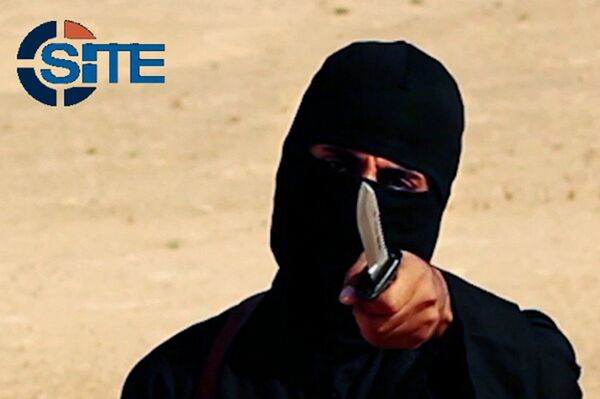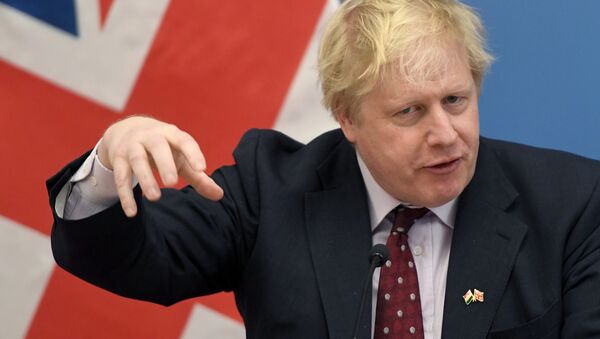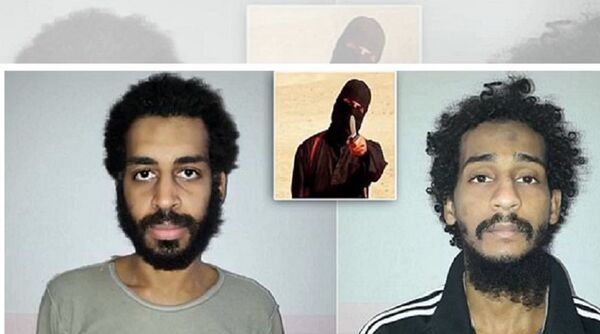Mr. Johnson has argued that if the pair — Alexanda Kotey and Shafee El-Sheikh — were to be struck down in a drone attack in Syria, the attack would be legally justified.
"Suppose the grisly pair had been located a couple of years ago in Raqqa. And let's suppose there was a Reaper drone overhead, and that British intelligence could help send a missile neatly through their windscreen. Would we provide the details — knowing that they would be killed without a chance for their lawyers to offer pleas in mitigation on account of their tough childhoods in west London? Would the British state, in these circumstances, have connived in straightforward extrajudicial killing? Too damn right we would," Mr. Johnson said.

The issue of drone strikes employment came to public prominence when, on 21 August 2015, Reyaad Khan, a 21-year-old British citizen from Cardiff, Wales — suspected in terrorist activities — was killed by an RAF drone strike in Raqqa, Syria.
The UK government didn't face any legal repercussions for what the then Prime Minister David Cameron called "a new departure" from the UK policy and "part of Government's comprehensive counterterrorism strategy that seeks to prevent and disrupt plots against the UK at every stage, as part of the stepped-up response to the acute threat from Islamist extremist violence."
"Of course we legally justify these drone strike assassinations as preventative: to stop future acts of terror in Syria. But that scarcely masks the reality that killing them is also retributive — payback for the filmed executions of innocent people," Mr. Johnson said.
READ MORE: British MPs Slam Government Silence Over Legality of Drone Strikes
He also drew attention to the fact that no "hot tears" were wept for "that other 'Beatle', Jihadi John." Mohammed Emwazi, also known under the nickname ‘Jihadi John,' was the leader of four Daesh terrorists responsible for brutal beheadings of foreign nationals in 2014 and 2015. He was killed in an airstrike carried out by a US warplane in Syria along with a British drone in 2015.

Mr. Johnson also questioned the duality on supporting the drone strikes — "extra-judicial killings, with no due process" — but panicking at what might happen to Kotey and Elsheikh in American court.
Earlier this week, the UK Home Secretary faced a backlash from MPs and human rights organizations over the government's decision to not seek assurances from the US Attorney General the two men won't be executed if found guilty.
READ MORE: MPs Baffled, UK Terror Laws Hit Amid Home Sec's 'Letter' on Daesh 'Beatles' Duo
On Monday, Security Minister Ben Wallace was forced to answer an urgent question in the House of Commons and heard harsh criticism by MPs over the "secret and unilateral" change by the government on its stance on the use of execution.
Meanwhile, Britain's former top diplomat argued that the "best hope of bringing Kotey and Elsheikh to justice is in America, and in sending them there the UK government has not dropped its opposition to the death penalty."
"We had to balance two risks: the risk that they would be simply set loose, like so many other jihadis, to roam the streets of London again, or the small risk that they might receive the death penalty under the US system. Sajid Javid and I decided that the first risk was worse than the second. Who really believes we were wrong?" Mr. Johnson concluded.
Alexanda Kotey and El Shafee Elsheikh were stripped of their UK citizenship, as they were accused of torturing and murdering more than 25 foreign hostages that were held by Daesh. With Mohammed Emwazi killed in 2015, the remaining fourth member, London-born Aine Davis, was sentenced by the Turkish court to seven-and-a-half years in prison in 2017.




